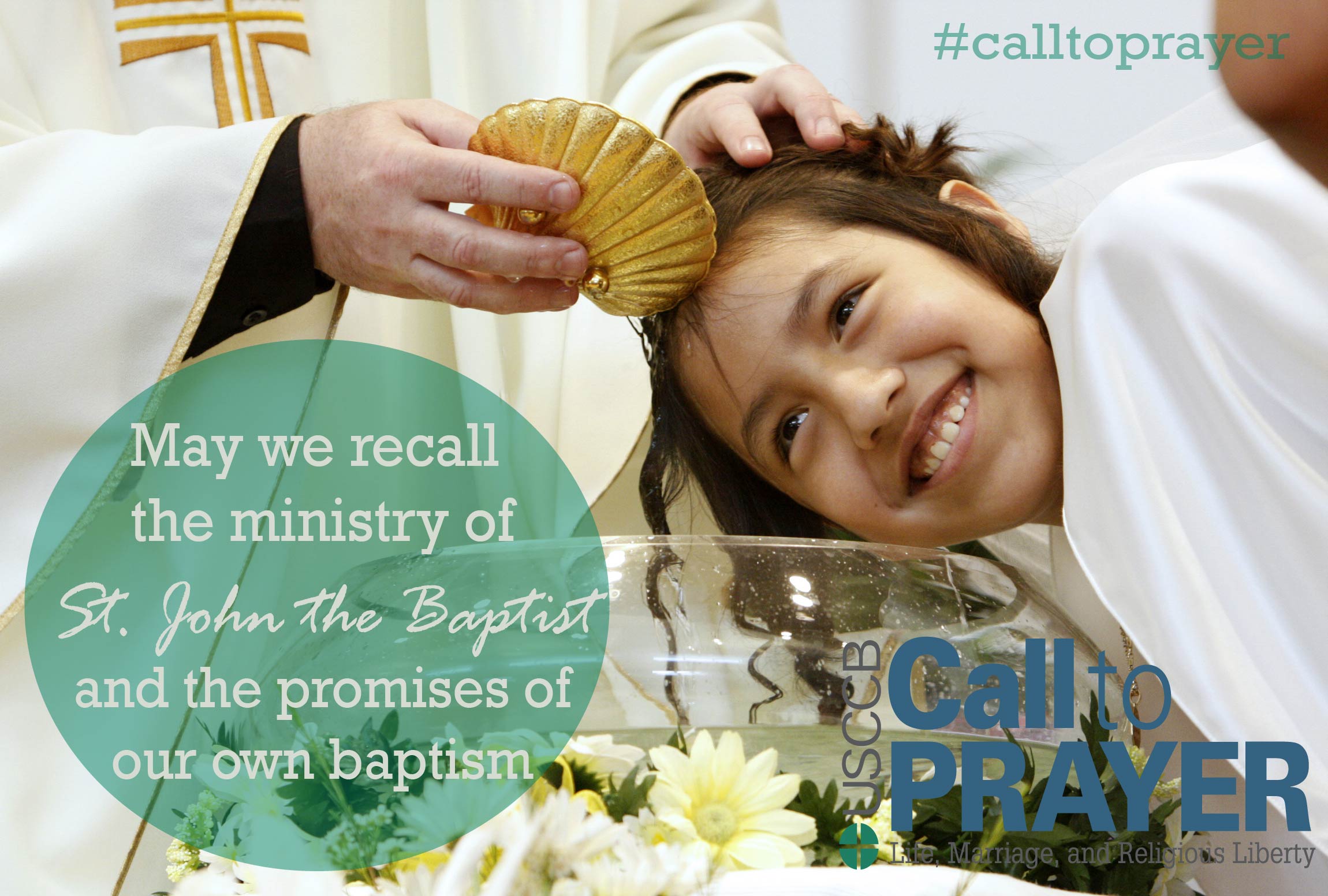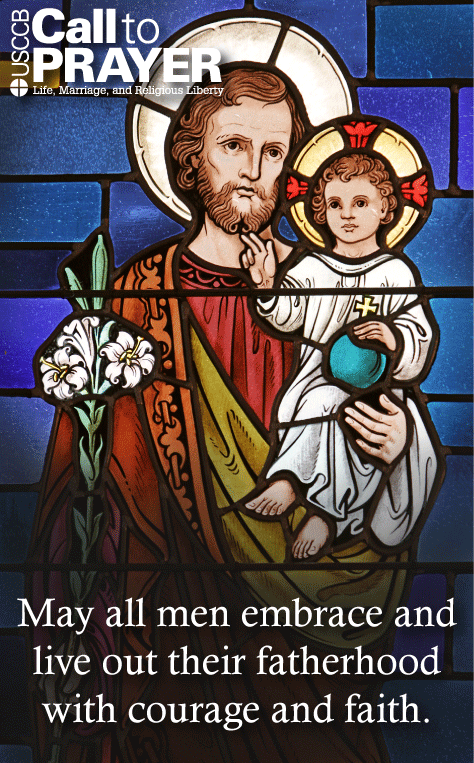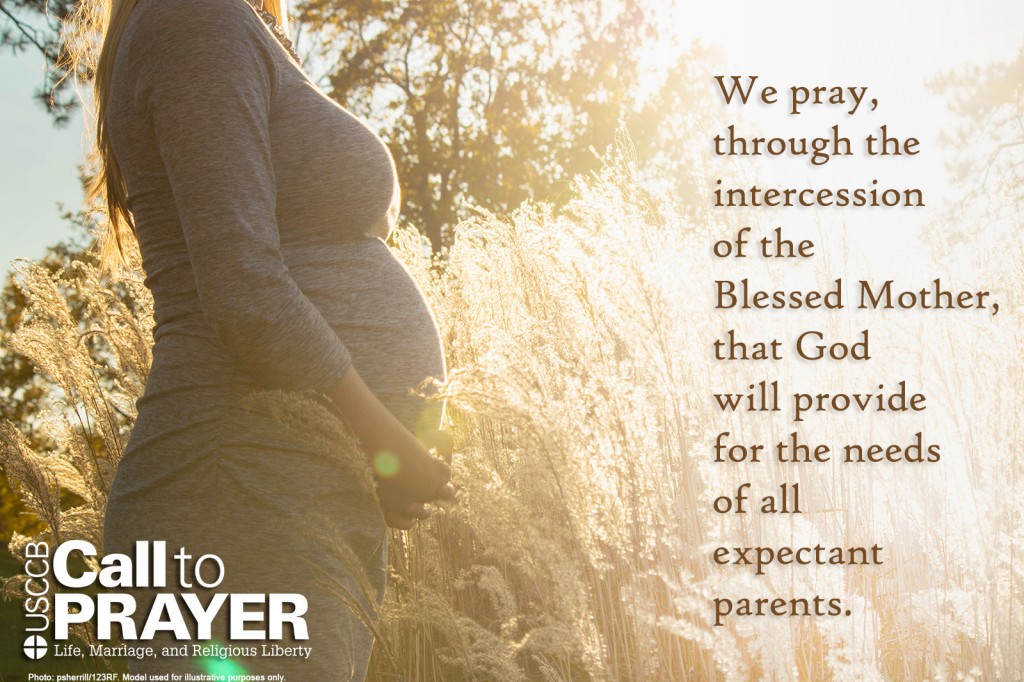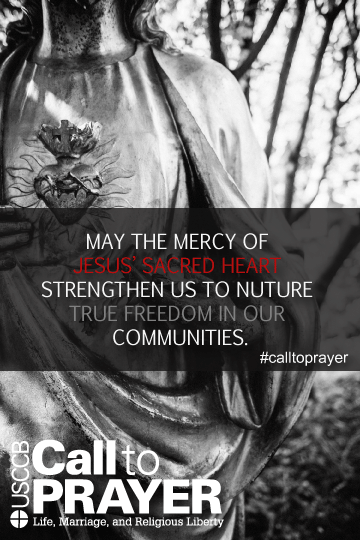Call To Prayer: June 24, 2016
Archive
March for Marriage 2016
On June 25, 2016, the day before the one year anniversary of the erroneous and unjust Supreme Court decision in Obergefell v. Hodges, a rally and March for Marriage will be held in Washington, D.C. The event is meant to highlight the importance of the unique meaning of marriage to society and the importance of mothers and fathers for children.
Participants will be gathering at the reflecting pool in front of the Capitol building around 11:30 a.m. for the program, and the march to the Supreme Court will begin at 1:00 p.m.
Please consider joining the March for Marriage 2016 to witness to the continued importance of authentic marriage!
Archive
It’s About More than Restrooms
This article was originally posted here by the Archdiocese of Oklahoma City.
By Archbishop Paul S. Coakley. May 29, 2016.
Earlier this year I came across an “all gender” restroom in the airport of a large American city. I had never seen such a thing. I snapped a picture. It struck me as strange, certainly not something I would expect to find in Oklahoma, for example. That may be about to change.
The media have been highlighting recent legal attempts in some states to keep boys out of girl’s restrooms and vice versa. This latest restroom controversy is a manifestation of the new battleground over “gender.” This battle, however, is about more than who can use which restroom. According to rules just issued by the Obama administration, public schools ought no longer to differentiate between boys and girls based on their biological sex, but now ought to acknowledge and accept their personal “gender identity.”
This is to be the basis for allowing them to choose which restroom to use. So-called gender identity, according to the gender theorists, is a matter of personal expression rather than biology. Consequently, if a boy self-identifies as a girl, then he ought to be allowed to use the girl’s restroom or locker room in any school that accepts government funding. It doesn’t take long to imagine the bizarre consequences that this way of thinking and establishing public policy and law will have in the future.
Efforts to resist the imposition of this gender ideology are already meeting stiff resistance from the federal government and powerful economic forces that are determined to advance their radical reinterpretation of human personhood and relationships. In recent years, many Americans were astounded by how rapidly public opinion, cultural standards and laws changed with regard to the acceptance of so-called homosexual marriage.
Today, anyone who questions the appropriateness of equating same-sex unions with traditional marriage is labeled a bigot, a homophobe and a “hater.” Stiff economic penalties and laws are being enacted that threaten individuals, businesses and other associations that dissent from this new radical orthodoxy that is being advanced by a powerful network of special interests.
What proponents called “marriage equality” was just the beginning. Gender ideology is the next tsunami that threatens to sweep away centuries of accepted human wisdom about the complementarity and real differences between men and women.
These differences are not merely about self-expression and personal choice. Science, philosophy, theology and the accumulated wisdom of every culture have recognized that these differences are rooted in something real and objective. They are rooted in biology and more fundamentally, they are rooted in the design of the Creator.
Pope Francis’ recent apostolic exhortation, “The Joy of Love,” acknowledges the threat that this new radical gender ideology poses. It was the subject of much discussion in the recent Synod of bishops on the family. Pope Francis writes, “Yet another challenge is posed by the various forms of an ideology of gender that ‘denies the difference and reciprocity in nature of a man and a woman and envisages a society without sexual differences, thereby eliminating the anthropological basis of the family. This ideology leads to educational programs and legislative enactments that promote a personal identity and emotional intimacy radically separated from the biological difference between male and female.Consequently, human identity becomes the choice of the individual, one that can also change over time.’”
As with every ideology this one asserts itself as beyond dispute and absolute. It envisions a brave new world in which the creature asserts himself as the creator of his own reality. This is demonic. Pope Francis continues, “It is one thing to be understanding of human weakness and the complexities of life, and another to accept ideologies that attempt to sunder what are inseparable aspects of reality. Let us not fall into the sin of trying to replace the Creator. We are creatures, and not omnipotent. Creation is prior to us and must be received as a gift. At the same time, we are called to protect our humanity, and this means, in the first place accepting it and respecting it as it was created”(Amoris Laetitia 56).
I am not an alarmist, but it seems clear to me that battle lines are being drawn very clear. And, these lines are about more than government overreach. This is a spiritual battle between Light and darkness.
Saint Michael the Archangel, defend us in battle!
Archive
Call to Prayer: June 17, 2016
Archive
Why Fathers Matter
by Archbishop William E. Lori
(This article was originally posted at The Catholic Review.
A few weeks ago, I attended a symposium on the efforts of the church to address the deep and longstanding problems in Baltimore’s poorest neighborhoods. Various speakers told how the church is helping to address these problems. I am proud of all that our Catholic hospitals, schools, parishes and social service agencies are doing to address major needs in many areas of the city.
The heads of these Catholic service agencies were impressive. However, the most important comments of the day were made by a group of students from a local Catholic high school. These five young men spoke about growing up in neighborhoods rife with violence, drugs, high unemployment and abandoned row houses. They told how, with the help of Catholic schools, they were pulling themselves up by their own bootstraps. You could tell that these young men were seeking to fulfill their God-given potential in a future full of hope.
One person in the audience asked, “What does it mean to have a male role model in your life?” One of the young men, intent on pursuing a career in financial services, answered, “It would have been ‘magical’ to have a dad who was engaged.” Another said that having a dad and mom would have made “a huge difference” for him and for his brothers and sisters. Still another said, “Having a man to look up to makes you think you can succeed.” Still others told us they had found male role models and mentors at their school and said how grateful they were to them.
These young men were speaking from their experience – much of it very difficult. They conveyed a sense of awareness that by God’s grace they’ve been pulled from the brink; that they are among the most fortunate. Key to their good fortune is a father or a father figure.
What is true of these young men from inner-city Baltimore is true of all young people. As children grow toward adulthood, their fathers play – or should play – a crucial role in their development. Absent a father, young people at least need to have a father figure whose virtue and wisdom in some way reflects the wisdom and love of God the Father. Yet it is not only inner-city fathers that tend to be missing-in-action. Fatherly absence cuts across all socio-economic lines.
Fathers help their children to be open to the challenges of the wider world while demonstrating the goodness of an authentically masculine love and concern for his wife and for his family. As mothers and fathers love each other and their children in distinct yet complementary ways, children learn how men and women should relate to one another – with deep respect for each other’s dignity and worth. And research shows that when a father practices his faith, his children are far more likely to grow up to be practicing Catholics.
Throughout my own life, I have been blessed by a loving father. My dad, a veteran of World War II, a man who worked hard all his life to provide for his family, taught us more by example than by word about the meaning of love. And his love and concern for his sons continues to this very day. Just recently my older brother died and I saw once again how deeply my father loves us.
As we celebrate Father’s Day this month, let us celebrate the role of our dads in building the domestic church, working hand in hand with their wives in making our homes places of prayer, learning, virtue and service, and in handing on the faith to the next generation.
Archive
Call to Prayer: June 10, 2016
Archive
Intern Post: Reflection on The Spirituality of Marriage and the Family from Amoris Laetitia
Many of my friends who grew up in nominally Catholic households have lamented to me that their family home lacked the richness of the faith that they later came to know through their own practice and study. They went to Mass and Sunday school as kids, maybe said grace before meals or a little bedtime prayer, but otherwise their families didn’t live in a distinctively Catholic way. In hindsight, these young adults consider themselves impoverished by an upbringing that was essentially secular, and they intend for their own marriages and families to have a deeply Catholic character. They prioritize the sacraments, strong catechesis, spiritual and corporal works of mercy, awareness of the liturgical calendar, balancing penance and celebration, and hospitality. Living those things out seems like a daunting task because they are not inheriting a tradition from their families so much as trying to create a new one in the wake of a cultural shift that undermines their efforts.
In the ninth chapter of Amoris Laetitia, Pope Francis offers us some ideas about what Catholic family life can look like. He cites Vatican II, saying that lay spirituality “will take its particular character from the circumstances of… married and family life,” (313). He says, “The spirituality of family love is made up of thousands of small but real gestures,” (315). Through the next several paragraphs he specifically mentions family prayer, supporting one another, caring for one another, showing mercy, giving complete attention to others, and welcoming those outside the family with hospitality. These suggestions are not simply lifestyle choices, take ‘em or leave ‘em. Rather, these concrete actions reflect the life of Christ himself who is present in the family through the grace given to every baptized person and especially through the real graces of the sacrament of marriage.
With all this talk about marriage and family, it might be tempting for those of us who are unmarried to ignore the Church’s advice because it seems irrelevant to this moment in our lives. However, even as a single person, the Pope’s words about marriage are meaningful because they help me to prepare my heart for the marriage the Lord wants for me, instead of the woefully inadequate “Hollywood” version that has been so culturally ingrained. It is tempting to imagine that finding a spouse will tie up all the loose ends in my life and, like the movies, the credits will roll and we’ll live happily ever after. But the Pope warns us all that spouses need “a certain ‘disillusionment’ with regard to one another,” (320) and I think the same can be said of those who are looking for a spouse. I can’t expect another person to fulfill me completely. I am taking to heart his note about “spiritual realism” and the warning that “one spouse not presume that the other can completely satisfy his or her needs,” (320) which is a message that is desperately needed by those of us immersed in popular culture. Additionally, the “small but real gestures” that characterize the spirituality of the family can be practiced by anyone anywhere. For example, we are all called to practice the corporal and spiritual works of mercy, but “feed the hungry” takes on a new urgency when “the hungry” is a distraught 2-year-old tugging on your shirt. Likewise, to “bear wrongs patiently” is practically a heroic virtue when you have to bear the wrong of a sibling who has no remorse and will likely wrong you again. Within our families we have abundant opportunities to practice the virtues that sanctify us and open us to deeper union with the Lord.
When my friends describe what they hope to give their families they usually have specific ideas about praying the rosary as a family or being involved in ongoing community service and the like. However, they usually find a way to express that what they mean when they describe various devotions and practices is that they want their whole lives to be ordered toward the mystery of God’s love. The specific actions are expressions of a real desire to know, love, and serve the Lord. Pope Francis says that “spirituality becomes incarnate in the communion of the family,” (316). As Jesus’ day-to-day life was ordered to the will of the Father, so too the family is called to live their daily lives for Him.
Archive
I am a Father: I’m a Priest
Guest post from Father Carter Griffin, Vice-Rector Vocation Director of the Saint John Paul II Seminary of the Archdiocese of Washington
“I don’t think I’m called to the priesthood. I think I’m called to be a father instead.”
As the Director of Priest Vocations in the Archdiocese of Washington, I hear that a lot. In fact, I used to struggle with it myself… Until I realized that we don’t just call priests “Father” as a kind of consolation prize, a nod to a guy who most obviously is not a father – but because he is a father in the deepest sense imaginable.
Who, after all, is a father? A man who generates life. Who is a good father? A man who generates life and then helps to provide for his child, protect and heal his child from injury, and guide his child into a flourishing life. In biological fatherhood, giving life doesn’t end with conception; it starts with it. The same is true in the spiritual fatherhood of a priest. He gives life, in union with our mother the Church, at the baptismal font. But his fatherhood doesn’t end there – it just starts there. The whole purpose of the priest’s life, like that of all fathers, is then to provide for his new child, protect, heal, and guide him or her into a flourishing life. Think of what a priest does all day – feed with the Holy Eucharist, protect from sin, heal spiritual injuries, teach the faith, and guide the souls entrusted to his care.
A priest friend of mine once admitted that, in the seminary, he had heard talks about priestly fatherhood but suspected that it was all a little fanciful. Nice thoughts, to be sure, and true enough in their own way – but it was a stretch to think of priests as real fathers. He looked forward to being a priest, certainly, but didn’t think of himself as preparing for genuine fatherhood. Then it was one day after his ordination, when the parties were over and the friends and family had gone home, and the euphoria of his ordination had started to wear off, and he stood before his own congregation offering Mass. He looked out at the people entrusted to his care, people who looked at him with hope, with love, with encouragement…and with struggles, and hurts, and a deep hunger for truth and goodness and beauty and eternal life…and then he got it. He was there to serve them just as his own father had been there for his family. Every part of fatherhood that his Dad had exercised in the natural order, he was now exercising in the order of grace. It was a startling, somewhat frightening thought, but also thrilling and joyful. Not much different than his Dad probably felt the day he held his tiny son in his arms.
When a potential seminarian says to me that he thinks he’s called to be a father, I tell him “Good! That’s a prerequisite. You might be called to the priesthood!”
Archive
AL Bootcamp: Final 3 Days!
June 6
“Love endures all things” (1 Cor 13:7).
Pope Francis: “In family life, we need to cultivate that strength of love which can help us fight every evil threatening it” (Amoris Laetitia, no. 119).
What is an evil that is threatening your family today? This may be from within (resentment, exhaustion, sin) or without (technology, entertainment, financial hardship). How are you fighting it?
June 7
“Love endures all things” (1 Cor 13:7).
Pope Francis: “I am sometimes amazed to see men or women who have had to separate from their spouse for their own protection, yet, because of their enduring conjugal love, still try to help them, even by enlisting others, in their moments of illness, suffering or trial. Here too we see a love that never gives up” (Amoris Laetitia, no. 119).
Do you know anyone in the situation that Pope Francis mentions here? Reach out to give that family a hand. If you do not know anyone personally, consider a donation to a domestic violence ministry.
June 8
“Love never fails” (1 Cor 13:8).
This is the conclusion of the AL Challenge. Did you make it through? Share your stories via Facebook.
Archive
Call to Prayer: June 3
Archive
Cardinal Wuerl: The Nature of the Human Being, Male or Female
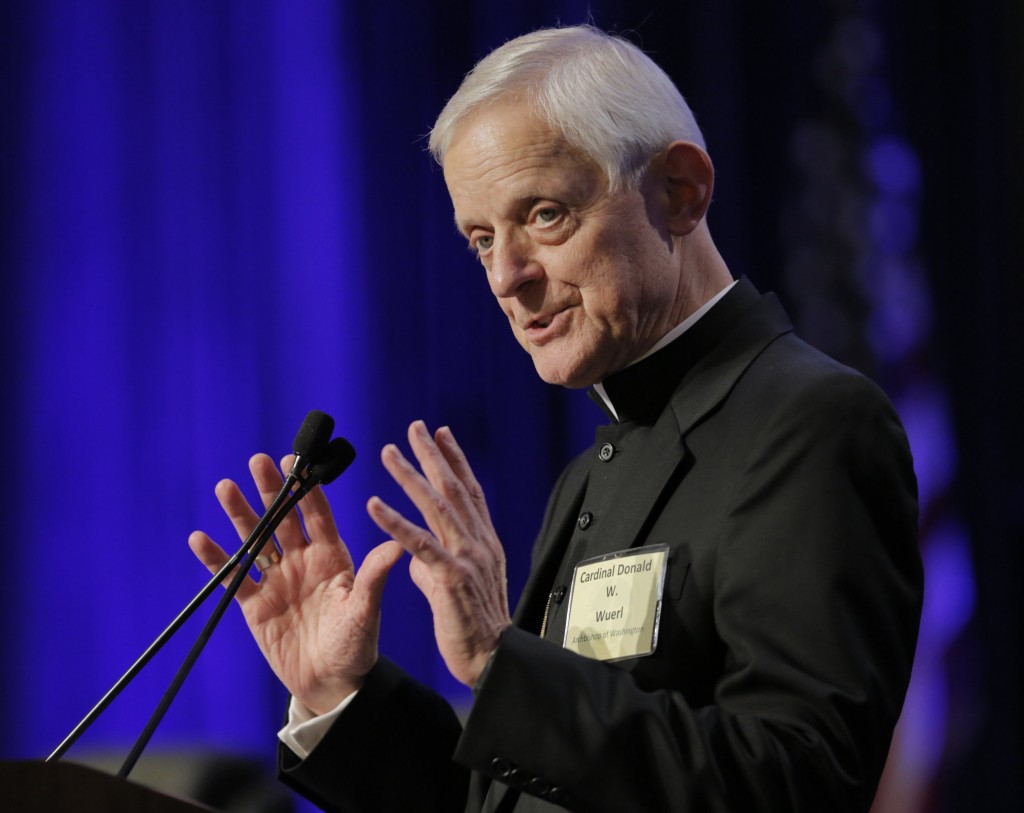
Washington Cardinal Donald W. Wuerl speaks during the 2015 fall general assembly of the U.S. Conference of Catholic Bishops in Baltimore Nov. 17. The cardinal spoke about the completion of the central dome in the upper church of the of the Basilica of the National Shrine of the Immaculate Conception in Washington. (CNS photo/Bob Roller) See BISHOPS- Nov. 17, 2015.
Cardinal Wuerl has published a piece on his blog regarding the nature of man as male and female.
He writes, “This body is not extraneous, but goes to our very essence… Before all else in this world, before we are able to form a single thought or make any decisions, from the very moment of our origin and conception, we have a body that is intrinsically sexually differentiated and constituted male or female in a way that cannot really be changed. Furthermore, the body reveals that man and woman are made to complement one another – they are made for love, the reality that forms the basis of family.”
Addressing the current cultural situation, Cardinal Wuerl says, “Last year we saw a societal redefinition of marriage and family. Today, the concept of humanity itself is called into question with an aggressive ‘gender’ ideology which holds that whether a person is male or female is not an objective reality, but is subjectively determined. Increasingly, those who do not go along with this new order are denounced and ostracized as bigoted. It is as if we all must now affirm that the world is flat lest we be condemned of discrimination.”
The Cardinal’s piece echoes parts of the MUR video Made for Freedom, released last week. He also cites the statement from Bishop Malone and Archbishop Lucas regarding the “transgender” directives to public schools.
